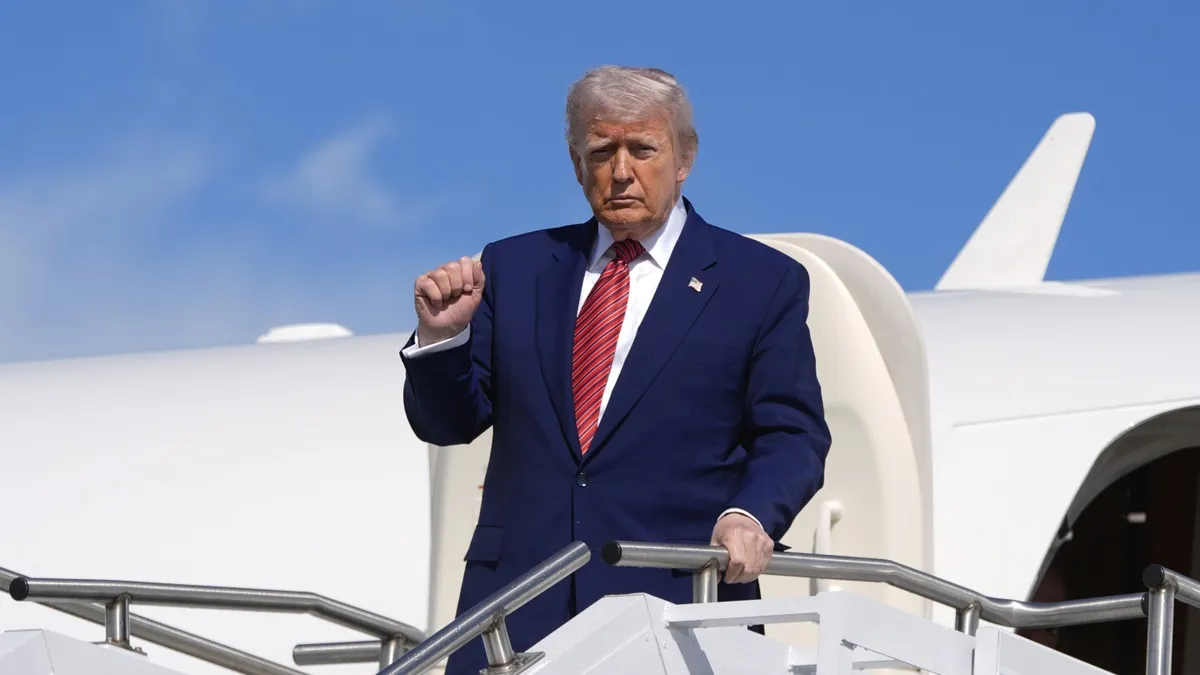
In a significant move, President Donald Trump has initiated a comprehensive reorganization of the National Security Council (NSC). This restructuring aims to reduce the size of the NSC, remove certain political appointees, and reintegrate numerous career government employees back into their respective agencies. According to two U.S. officials and a source familiar with the changes, the staffing levels at the NSC are set to be drastically cut.
The shake-up at the NSC follows the recent ousting of Trump’s national security adviser, Mike Waltz, who was known for adhering to traditional Republican foreign policy principles. In the interim, Secretary of State Marco Rubio has stepped into the national security adviser role. This transition is expected to enhance the influence of both the State Department and the Pentagon in advising Trump on crucial foreign policy decisions.
Despite these changes, it is well-known that Trump primarily relies on his own instincts when making decisions, often prioritizing them over formal advice. The NSC, established during the Truman administration, serves as a critical arm of the White House, tasked with advising the president on matters of national security and foreign policy while coordinating among various government agencies.
During his first term, Trump expressed frustration with political appointees and advisers whom he believed obstructed his “America First” agenda. The NSC previously employed around 395 individuals, including approximately 180 support staff. The impending changes will see about 90 to 95 policy experts, who had been detailed from other government agencies, being let go. These individuals will have the option to return to their original agencies.
Additionally, many political appointees will be reassigned to different roles within the administration, as confirmed by one official familiar with the situation. The current upheaval within the NSC is just one of several changes occurring as Trump embarks on his second term in the White House.
The NSC has experienced ongoing turmoil, especially following Waltz's departure. His ousting came shortly after Trump dismissed several NSC officials, a decision influenced by concerns raised by far-right activist Laura Loomer regarding staff loyalty. Loomer has a controversial history, including promoting conspiracy theories related to 9/11 and QAnon, and she has been vocal about her desire to remove individuals she perceives as disloyal to Trump.
In the early days of the current administration, approximately 160 NSC aides, primarily career government employees, were sidelined while the administration assessed staffing and alignment with Trump’s agenda. This recent overhaul is being described as a “liquidation” of NSC staffing, reflecting a significant shift in personnel dynamics.
According to a White House official, the overhaul of the NSC was first reported by Axios and is officially confirmed. Notable appointments within this new structure include Andy Baker, who will serve as national security adviser to Vice President JD Vance, and Robert Gabriel, who will act as an assistant to the president for policy and serve as a deputy national security adviser.
Waltz faced considerable criticism during his brief tenure, particularly after it was revealed that he included journalist Jeffrey Goldberg in a private text chain discussing sensitive military operations. Although Waltz acknowledged responsibility for the text chain, he was uncertain how Goldberg became included.
As the NSC undergoes this significant restructuring, it remains to be seen how these changes will impact U.S. foreign policy. Waltz had been viewed with skepticism by some factions within the MAGA movement, who considered him too aligned with Washington’s traditional foreign policy establishment. His positions on U.S. military aid to Ukraine and diplomatic relations with Russia appeared to contrast with Trump’s more restrained approach.
With the NSC in a state of flux, the upcoming months will be critical in determining how these personnel changes will influence America’s national security strategy and its relationships with global adversaries.
As the situation develops, it is clear that President Trump is committed to reshaping the NSC to better reflect his administration's priorities and to further his vision of an "America First" foreign policy.